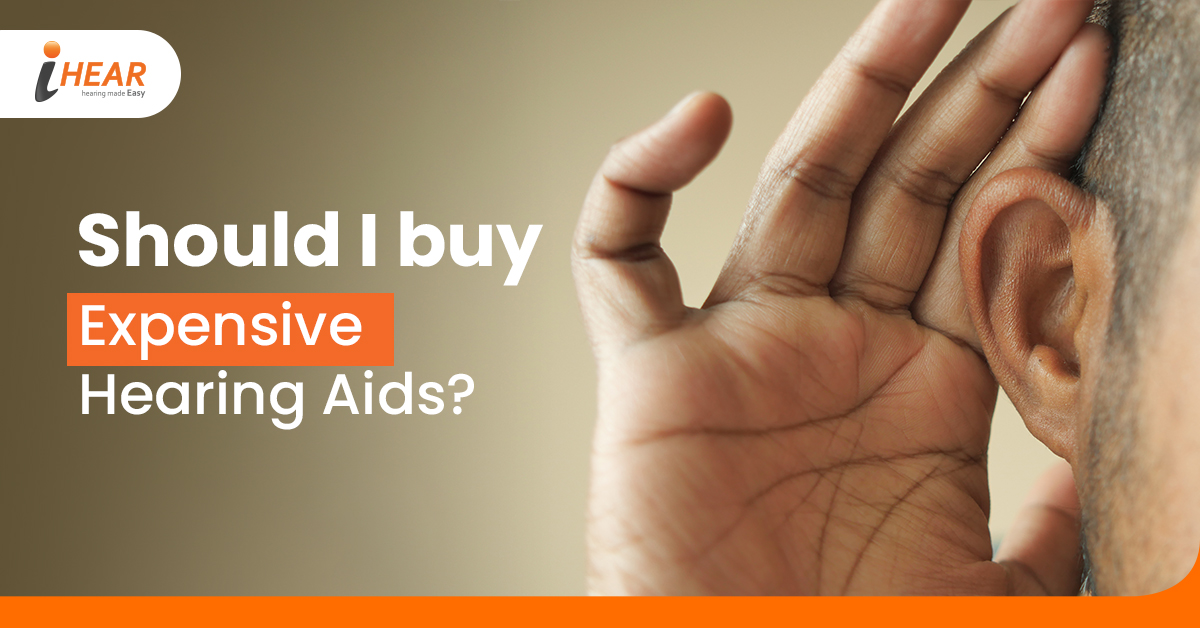Should I buy Expensive Hearing Aids?
It’s commendable that you want to help individuals who may struggle with the high cost of hearing aids. Hearing loss is a prevalent issue, and the cost of hearing aids can indeed be a barrier for many people. Here are some ways you can make a difference and provide assistance to those in need of hearing aids:
Donate to Hearing Aid Charities: Many organizations and charities collect and distribute donated hearing aids to those who cannot afford them. You can donate your old or unused hearing aids to these organizations.
Fundraising and Awareness: You can organize fundraisers or awareness campaigns in your community to support individuals with hearing loss. These events can raise money to purchase hearing aids or educate people about hearing health.
Advocate for Insurance Coverage: Advocate for insurance policies to cover the cost of hearing aids. Some countries and states have taken steps to make hearing aids more accessible through insurance mandates.
Support Local Nonprofits: Many nonprofits are dedicated to helping individuals with hearing loss. You can support these organizations through donations, volunteering, or fundraising efforts.
Connect with Audiologists: Work with local audiologists to identify individuals who are in need of hearing aids but cannot afford them. They may have information on potential recipients and can provide guidance on the most suitable devices.
Educate on Preventative Measures: Raise awareness about hearing protection and preventative measures to reduce the risk of hearing loss. This can help in the long run by reducing the number of people who require hearing aids.
Explore Government Programs: Research government programs or subsidies that provide financial assistance for hearing aids in your region. You can help eligible individuals navigate these programs.
Provide Financial Assistance: Consider offering financial assistance directly to individuals who need hearing aids. This can be done through scholarships or grants specifically for hearing aids.
Partner with Hearing Aid Manufacturers: Some hearing aid manufacturers offer charitable programs that provide free or low-cost hearing aids to those in need. Explore partnerships with these manufacturers to expand your impact.
Spread Awareness: Use your voice and social media to educate people about the challenges faced by those with hearing loss and the solutions available. Encourage empathy and understanding in your community.
Your willingness to help those who need hearing aids is a wonderful way to make a positive impact on people’s lives. Even small efforts can go a long way in improving the quality of life for individuals with hearing loss.
How Do I Find the Best Hearing Aids: Finding the best hearing aids requires careful consideration of your specific hearing needs, lifestyle, and preferences? Here’s a step-by-step guide to help you find the most suitable hearing aids:
- Consult an Audiologist:
Start by scheduling an appointment with a licensed audiologist. They will conduct a comprehensive hearing evaluation to assess the type and degree of your hearing loss.
- Understand Your Hearing Loss:
Learn about the specific nature of your hearing loss, including its type (conductive, sensorineural, or mixed) and degree (mild, moderate, severe, profound).
- Discuss Lifestyle and Needs:
Have an open conversation with your audiologist about your daily activities, social interactions, and any specific listening challenges you face. This will help determine the best features for your hearing aids.
- Budget Considerations:
Determine your budget for hearing aids. While it’s essential to find an affordable option, be open to investing in quality devices that address your needs effectively.
- Choose the Right Style:
Hearing aids come in various styles, including behind-the-ear (BTE), in-the-ear (ITE), and in-the-canal (ITC) models. Your audiologist can recommend the style that best suits your hearing loss and comfort preferences.
- Technology and Features:
Discuss the available features, such as noise reduction, directional microphones, connectivity (Bluetooth), and smartphone apps. Choose features that align with your lifestyle and listening environments.
- Consider Compatibility:
If you use other devices like smartphones, make sure your hearing aids are compatible. Bluetooth connectivity can be particularly useful for streaming audio directly to your hearing aids.
- Trial Period:
Many providers offer trial periods for hearing aids. Use this time to test the devices in various environments and ensure they suit your needs.
- Read Reviews and Compare:
Research different hearing aid models and read reviews from users to gauge their performance and reliability. Comparing various options can help you make an informed decision.
- Warranty and Support:
Look for hearing aids that come with a good warranty and ongoing support from the manufacturer or provider. This is essential for maintenance and potential repairs.
- Maintenance and Cleaning:
Consider how easy it is to clean and maintain the hearing aids. Regular cleaning and maintenance are essential for their longevity.
- Follow-Up Appointments:
After purchasing hearing aids, expect follow-up appointments with your audiologist to make any necessary adjustments or fine-tuning.
- Check for Accessibility Features:
If you have specific accessibility needs, such as telecoil compatibility for use with hearing loop systems, ensure your hearing aids have these features.
- Ask for Recommendations:
Your audiologist can provide recommendations based on your specific needs. You can also seek advice from friends or family members who use hearing aids.
- Consider Future Needs:
Anticipate how your hearing needs may change over time. Choose hearing aids that can be adjusted and adapted to accommodate future changes.
Remember that the best hearing aids for one person may not be the best for another. The key is to work closely with your audiologist to find the most suitable hearing aids for your unique hearing situation and lifestyle.

